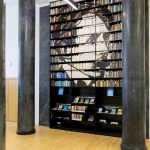

 2 February 2022
2 February 2022
The online information content of the Martynas Mažvydas National Library of Lithuania will be archived and preserved by one of the world’s largest and USA’s oldest libraries, the Library of Congress.
The Library of Congress has been given permission to regularly collect material of Lithuania’s National Library (published on its website including public third-party content of its web location, e.g., that of Facebook, YouTube, etc.). The Library of Congress will provide access to the collected content by using the National Library’s tools under a special agreement.
Specialists working with the Library of Congress’ online archive manage and preserve the archived web content and provide its access in order make it available to researchers today and in the future. The content is selected by the Library’s experts. To quote these experts, ‘Websites are often ephemeral and often considered at risk-born digital content. New websites form constantly, URLs change, content changes, and websites sometimes disappear entirely. Websites document current events, organizations, public reactions, government information, and cultural and scholarly information on a wide variety of topics.’
Traditional functions of the Library of Congress – acquiring, cataloguing, preserving and providing access to collection materials in order to foster education and scholarship – extend to digital materials including websites. Web archives are important because they contribute to the historical record by capturing information that otherwise could be lost. With the growing role of the web as influential medium, record of events would be incomplete without material that is ‘born digital’ and never printed on paper
Lithuania’s National Library operates in an increasingly changing information, research, and cultural environment. Exponential increase of flows of information adds to the importance of digital content within all domains of science, economics, and culture. Today, movement of data has become ‘the fifth freedom’. In line with the European Union’s and Lithuania’s policy for the opening and reuse of public sector data, the National Library actively engages into global initiatives Open Culture, Open GLAMs, and Wikimedia, etc. with a view to encourage legitimate reuse and dissemination of resources in the digital environment.
The National Library hopes that this vision of the Library of Congress regarding the archiving of digital content will substantially expand access to online content for the world’s researchers and contribute to the implementation of the open data policy.



